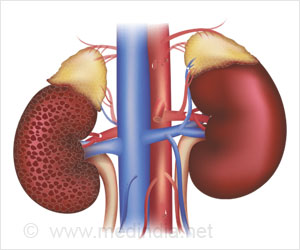Anger is an universal emotion. Many of us get angry for legitimate reasons
Anger is an universal emotion. Many of us get angry for legitimate reasons. While some of us, it seems, have anger as a disease .
According to a study carried out by researchers from Harvard Medical School in collaboration with the University of Chicago, approximately 16 million Americans are prone to a form of anger called 'Intermittent Explosive Disorder'(IED), characterised by 'a failure to resist aggressive impulses'.When does an emotion like anger become a disorder? For many critics , this brand new anger syndrome seems like another way of shirking responsibility from one's bad behaviour, falling in trend with the inceasing 'medicalisation' of everyday problems. In America, it may not be surprising to find that IED being used successfully as a legal defence.
According to a spokesman for the Royal College of Psychiatrists in the UK, Dr Deenesh Khoosal, such criticisms are definitely off the mark. Even if one is diagnosed with IED, he says there's still a responsibility to do something about it.
In fact IED is a widely recognised condition and was first added to the American Psychiatric Association's Diagnostic and Statistic Manual of Mental Disorders (DSM) in 1980. It is classified as an 'impulse-control disorder' ,along with others like kleptomania. 'If people think these explosive outbursts are just bad behaviour', says Dr Emil Coccaro, of the Harvard study, 'they are not thinking of this as a serious biomedical problem that can be treated'.
IED has been defined to involve 'several discrete episodes of failure to resist aggressive impulses that result in serious acts of assault or destruction of property', and 'the degree of aggressiveness expressed during the episodes is grossly out of proportion to any precipitating psycho-social stressors'. Therefore IED appears to include such common anger displays such as road rage, air rage, trolley rage and phone rage incidents that are often classified , most often incorrectly, as understandable responses triggered by the pressures of modern life, rather than a hyper-sensitive reaction to ordinary inconveniences.
The Harvard study estimated that IED sufferers experienced an average of 43 such outbursts in a lifetime .The study's major finding was that up to 7.3% of Americans surveyed had experienced IED in one form or the other , indicating that, IED, which once seemed a comparatively rare disorder, is actually under-diagnosed.
Advertisements
The DSM once insisted that patients with 'generalised aggression or impulsivity' be exempted from being classified with IED, but this requirement has been dropped from the most recent edition, resulting in an increase in candidates. There is the difficulty of deciding the severity and frequency of the episodes that may qualify one for being diagnosed with IED. The broadest definition used by the Harvard study requires just three episodes in a lifetime. How many of us do not qualify?
Advertisements
The symptoms of IED may be now clear, but the causes are little understood. It has been associated with epilepsy, or decreased levels of serotonin, and hence sometimes is treated with anti-depressants,while cognitive therapy is another option.





